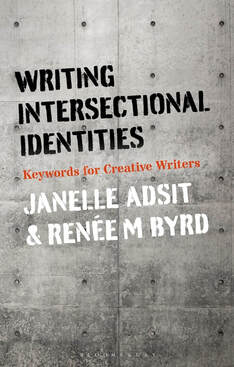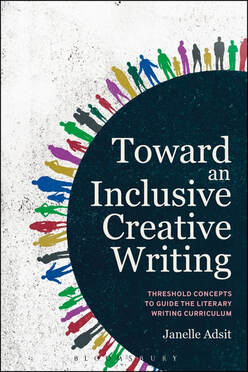|
Bringing together 25 essential works of craft-criticism in a single volume, this is a comprehensive introduction to the key debates in creative writing today, from the ethics of appropriation to the politics of literary evaluation. The book anthologizes critical essays written by international literary writers. Each essay is contextualized with an introduction as well as sample questions, writing prompts and suggested readings.
Topics include:
Includes writings by: Ayana Mathis, Leslie Marmon Silko, Craig Santos Perez, Natasha Sajé, Porochista Khakpour, Taiye Selasi, Michael Nardone, Conchitina Cruz, Benjamin Paloff, Dorothy Wang, and many more. Find out more about the book on the Bloomsbury Literary Studies Blog. |
RELATED BOOKS
Writing Intersectional IdentitiesIs it okay to write about people of other genders, races and identities? And how do I do this responsibly?
Whether you are working in fiction, poetry, drama or creative non-fiction, becoming conscious of how you represent people of different social identities is one of the most important responsibilities you have as a writer. This is the first practical guide to thinking and writing reflectively about these issues. Organised in an easy-to-use A to Z format for practicing writers, teachers and students, Writing Intersectional Identities covers such key terms as: Appropriation, Authenticity, Counternarrative, Disability, Essentialism, Gender, Power, Privilege, Representation The book is meant for writers of fiction, poetry, screenplays and creative non-fiction who are seeking to develop a writing practice that is attentive to the world. |
Toward an Inclusive Creative WritingThe creative writing workshop has existed since the early part of the 20th century, but does it adequately serve the students who come to it today? While the workshop is often thought of as a form of student-centered pedagogy, it turns out that workshop conversations serve to marginalize a range of aesthetic orientations and the cultural histories to which they belong. Given the shifting demographics of higher education, it is time to re-evaluate the creative writing curriculum and move literary writing pedagogy toward a more inclusive, equitable model.
Toward an Inclusive Creative Writing makes the argument that creative writing stands upon problematic assumptions about what counts as valid artistic production, and these implicit beliefs result in exclusionary pedagogical practices. To counter this tendency of creative writing, this book proposes a revised curriculum that rests upon 12 threshold concepts that can serve to transform the teaching of literary writing craft. The book also has a companion website www.criticalcreativewriting.org offering supplemental materials such as lesson plans and course materials. |


